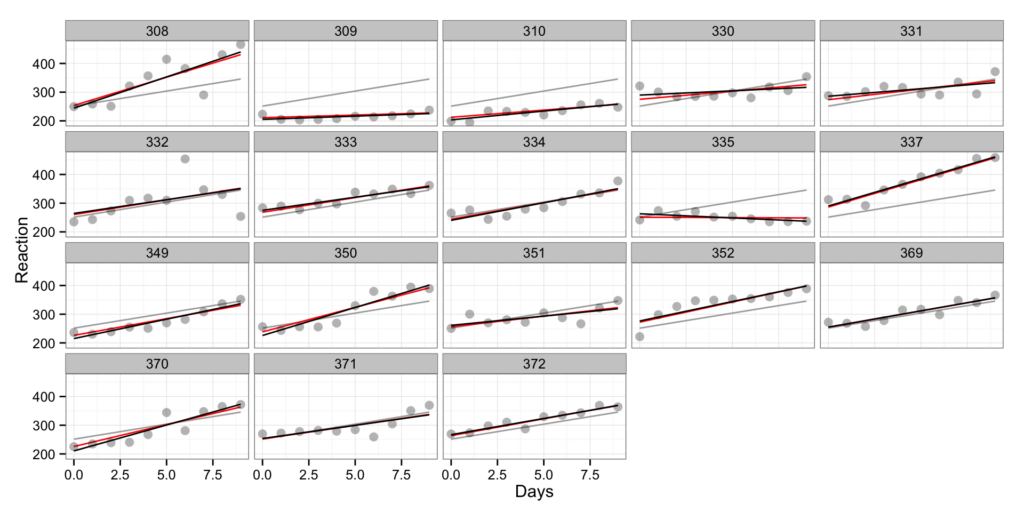Maximising Performance: The Crucial Link between Sleep and Nutrition in Adolescent Athletes
Introduction: As coaches, we play a vital role in shaping the performance and well-being of adolescent athletes. In order to unlock their full potential, it is crucial to understand the profound impact of sleep and nutrition on their athletic performance, growth, and overall health. This article aims to provide a comprehensive overview of the importance, impact, and relationship between sleep and nutrition in adolescent athletes, equipping coaches with valuable knowledge to optimise their athletes’ performance.
The Importance of Sleep for Adolescent Athletes:
Sleep’s Role in Athletic Performance:
1. Enhanced cognitive function, reaction time, and decision-making abilities:
Obtaining sufficient sleep improves memory consolidation, attention, and concentration, leading to better cognitive function. Research studies have shown that athletes who get 8 or more hours of sleep demonstrate significantly faster reaction times and increased accuracy in decision-making 1. For example, a study on collegiate basketball players found that extending sleep duration resulted in improved reaction time and decision-making performance 2.
2. Improved physical performance, endurance, and motor skill acquisition:
Adequate sleep promotes optimal muscular recovery and regeneration. Athletes who obtain the recommended sleep duration have been found to have faster sprint times and better endurance performance compared to those with insufficient sleep 1. In a study with collegiate basketball players, sleep extension led to enhanced serve accuracy, sprint performance, and shooting accuracy 3.
3. Faster recovery, reduced injury risk, and better immune function:
Sleep supports tissue repair, hormone regulation, and muscle growth, aiding in post-exercise recovery. It also plays a crucial role in immune function. Sleep deprivation may impair immune function and increase the risk of upper respiratory tract infections among athletes 4. Research has shown that chronic lack of sleep is associated with an increased risk of sports injuries in adolescent athletes 5.
The Impact of Sleep Deprivation on Athletes:
1. Impaired attention, concentration, and learning capabilities:
Lack of sleep hampers cognitive processes, leading to reduced focus, decreased attention span, and difficulties with learning and information retention 6.
2. Reduced reaction time, accuracy, and coordination:
Sleep deprivation impairs reaction time, affecting athletes’ ability to respond quickly to stimuli during training and competition. It also affects coordination, which can be detrimental to performance and increase the risk of injuries 1.
3. Increased susceptibility to injuries and illnesses:
Sleep deprivation compromises the body’s ability to recover, increasing the risk of musculoskeletal injuries. Moreover, it negatively affects immune function, making athletes more susceptible to illnesses and infections 5.
4. Negative effects on mood, motivation, and mental well-being:
Insufficient sleep can lead to mood disturbances, irritability, decreased motivation, and increased levels of stress and anxiety. Athletes may experience reduced enjoyment and satisfaction in their sport, affecting overall mental well-being 1.
Optimal Sleep Duration and Quality:
1. Highlight the recommended sleep duration for adolescent athletes:
The American Academy of Sleep Medicine recommends that adolescents aged 13-18 years should aim for 8-10 hours of sleep per night for optimal health and performance 12
. Adequate sleep duration is essential for adolescent athletes to meet the physical and mental demands of training and competition.
2. Discuss the importance of maintaining a consistent sleep schedule:
Consistency in sleep patterns helps regulate the body’s internal clock, promoting better sleep quality and synchronisation with athletic routines. Encourage athletes to establish regular bedtimes and wake-up times, even on weekends 1.
3. Strategies for optimizing sleep quality:
Creating an ideal sleep environment is crucial. Athletes should ensure their bedroom is cool, dark, and quiet, free from distractions that may disrupt sleep 1. They should limit electronic device use before bedtime, as exposure to blue light can interfere with the natural sleep-wake cycle. Practicing relaxation techniques, such as deep breathing, meditation, or gentle stretching, can also help athletes wind down and prepare for sleep 1.
Additional evidence and studies:
- A study on collegiate swimmers found that extended sleep duration improved mood, athletic performance, and overall well-being 9.
- Sleep disorders, such as sleep apnea or insomnia, are prevalent among athletes and can significantly impact their sleep quality and performance 7.
- Inadequate sleep has been associated with decreased accuracy and consistency in free-throw shooting among basketball players 8.
- Research on adolescent athletes has shown that sleep extension can lead to faster reaction times, better serving accuracy, improved sprint performance, and increased shooting accuracy 3.
- A systematic review examining the relationship between sleep and injury risk in athletes found that sleep duration of less than 7 hours per night was associated with a higher risk of injuries 5.
The Role of Nutrition in Adolescent Athletes:
Fuelling Performance Through Proper Nutrition:
1. The Significance of Macronutrients:
After a tapering period, literature has consistently demonstrated increases in total blood volume, which consisted of increases in RBC, haemoglobin content and haematocrit (Shepley et al., 1992; Margaritis et al., 2003; Mujika et al., 2000; Rushall and Busch, 1980) which can be attributed …











Responses